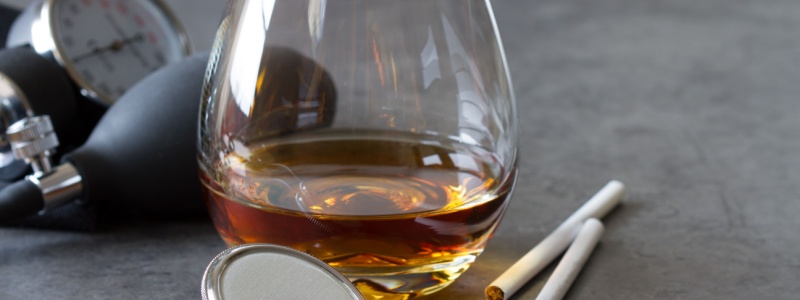Limiting alcohol consumption is essential for maintaining healthy blood pressure levels. While moderate alcohol consumption may have some health benefits, excessive drinking can lead to high blood pressure and other serious health issues.
Moderate drinking is up to one drink per day, equalling 350 ml of beer, 150 ml of wine, or 45 ml of distilled spirits. Exceeding these limits can raise your blood pressure and increase your risk of developing hypertension.
Here are some tips to help you limit your alcohol intake:
Set limits: Decide in advance how many drinks you will have and stick to your plan. Consider alternating alcoholic drinks with water or a non-alcoholic beverage.
Drink slowly: Sip your drink slowly and take breaks between drinks. This can help you stay within your limits and reduce your overall intake.
Choose low-alcohol options: choose a drink lower in alcohol, such as light beer or wine spritzers. This can help you enjoy your drinks without consuming too much alcohol.
Avoid binge drinking: Binge drinking, defined as consuming a large amount of alcohol in a short period, can cause sudden spikes in blood pressure. Spread your drinks out over time and avoid drinking too much at once.
Be mindful of social situations: Social events can often involve alcohol. Plan to ensure you don’t drink more than you intended. Let friends and family know about your goals to limit alcohol, and ask for their support.
Alcohol can also interact with medications used to treat high blood pressure, potentially reducing their effectiveness or causing adverse effects. Always consult your doctor about how alcohol might affect your medications and overall health.
By limiting your alcohol intake, you can help manage your blood pressure and reduce your risk of hypertension-related complications. Making mindful choices about alcohol can contribute to a healthier lifestyle and better blood pressure control.



